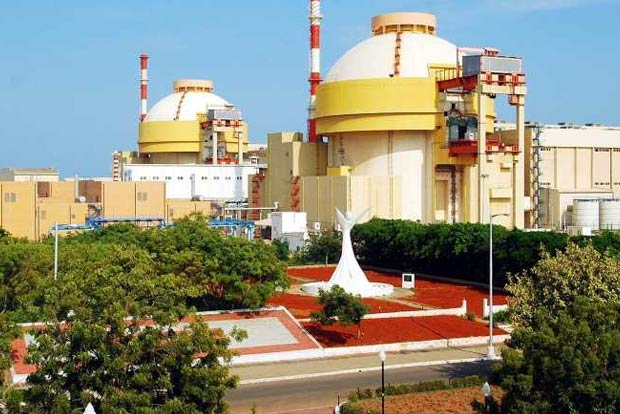Begin typing your search...
Malware attack on Kudankulam plant computer: DMK seeks probe into 'lapses'
The Nuclear Power Corporation of India (NPCIL) on Wednesday admitted of a malware attack on one of the computers in the Kudankulam Nuclear Power Plant.

Chennai
The DMK on Wednesday expressed 'shock' over the malware attack on one of the computers in the Kudankulam Nuclear Power Plant in Tamil Nadu and demanded a probe by the Centre into "the lapses".
Hours after The Nuclear Power Corporation of India (NPCIL) admitted the malware attack, DMK president M K Stalin voiced concern over 'lack' of adequate safety measures.
"The cyber attack on NPCIL facilities is shocking and reveals the lack of adequate safety measures," he tweeted.
"The Union Government must conduct a thorough enquiry into the lapses. The National Cyber Security Coordinator owes an explanation on the preparedness of such facilities #Kudankulam," he added.
The NPCIL, a public sector undertaking under the Department of Atomic Energy, while admitting the malware attack, however, said the plant systems were not affected.
"Identification of malware in NPCIL system is correct. The matter was conveyed by CERT-In (Computer emergency response team) when it was noticed by them on September 4, 2019," it said.
The matter was investigated immediately by experts of the Department of Atomic Energy which revealed that the infected computer belonged to a user who was connected in the internet network used for administrative purposes.
"This is isolated from the critical internal network. The networks are being continuously monitored. Investigations also confirm that the plant systems are not affected," the statement added.
On Tuesday, Kudankulam nuclear power plant allayed fears of a cyber attack on its systems and said such attacks were not possible.
KKNPP training superintendent and information officer R Ramdoss had said reports in the social media about cyber attacks were false and clarified KKNPP and the other nuclear power plants' control systems were 'standalone' and not connected to any cyber networks outside or the internet.
The attack also refreshed the memories of a virus attack on an Iranian nuclear facility.
Last year, Iran's Natanz nuclear site uranium enrichment facility came under attack from Stuxnet virus, which it blamed on Israel. It also believed that Stuxnet probably arrived at the nuclear facility on an infected pen drive.
R K Sinha, former secretary of the Department of Atomic Energy (DAE) under whom KKNPP Unit I was connected to the grid, said the systems involved in operating of the plant are completely independent and are never connected to any other system or the internet.
So the possibility of cyber attack on the systems involved in operating the plant is not possible, he added.
The KKNPP, located in Tirunelveli district over 600 kms from here, is an Indo-Russian joint venture.
Units I and II of 1000 MWe capacity each have commenced commercial operations while Units III and IV are under construction.
Visit news.dtnext.in to explore our interactive epaper!
Download the DT Next app for more exciting features!
Click here for iOS
Click here for Android
Next Story



